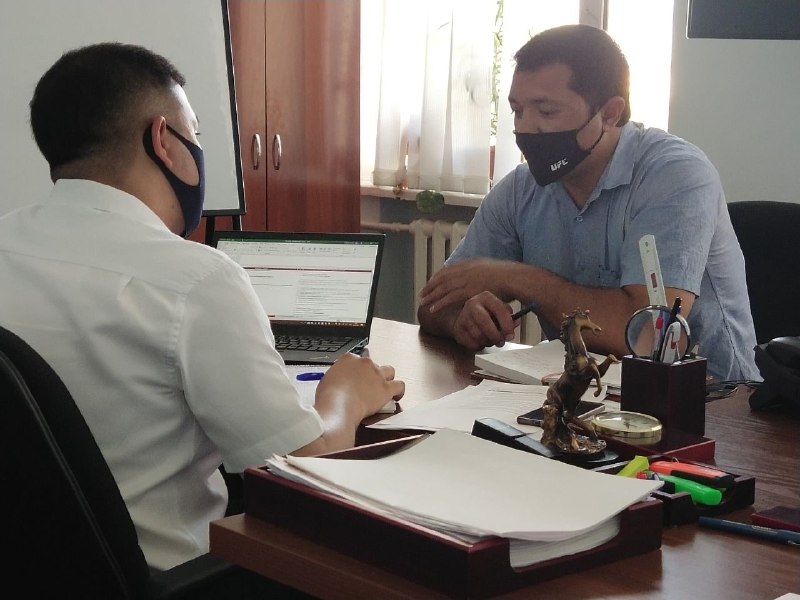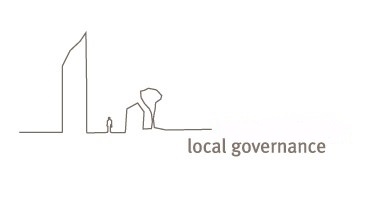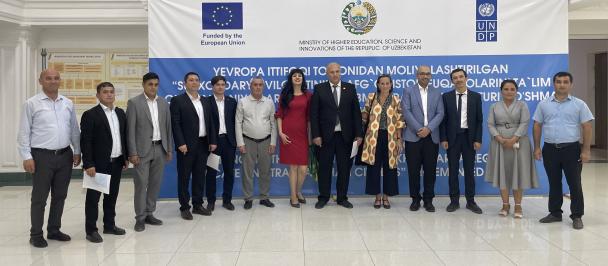Image from Internet
The administrative reforms introduced by President Mirziyoyev in 2017 were meant improve the quality and reach of essential public services to all people of Uzbekistan, no matter how remote. An important component of this effort involves decentralization, whereby decision-making and budgeting authority is transferred to local levels of government.
The concept of decentralization is rooted in the principle of subsidiarity, whereby a central authority should perform only those tasks which cannot be performed more effectively at an immediate or local level. The idea is that local authorities are better suited to respond to local needs and priorities. Also, the Central Government is better able to focus on national priorities and concerns when it does not have to occupy its time and energy on local matters.
Furthermore, in a decentralized governance structure, corruption is usually reduced as local elected authorities became more accountable to their constituents and less dependant on higher levels of central authority to keep their jobs.
The process of decentralization often involves revamping administrative structures and top-down systems of governance and replacing them with locally-accountable structures that combine greater accountability of local government with increased financial and economic sustainability, or self-sufficiency. The financial resources usually come through a combination of local source tax revenue and intergovernmental fiscal transfers from the central government, based on an annual budget.
UNDP recently contracted PricewaterhouseCoopers to produce functional review of the decentralization process in five pilot districts of the EU-UNDP joint project, “Improved public service delivery and enhanced governance in rural Uzbekistan”. The five pilot districts are Bakhmal, Dehkanabad, Khavast and Sariasiya districts and Nurafshon city. Their report, Analytical Report on the Results of a Functional Analysis of 5 Pilot District Khokiimyats documents the results of their review.
Within the functional review, 23 employees of district khokimiyats and 10 employees of regional khokimiyats were interviewed, including heads of various departments of regional and district khokimiyats and specialists. Simultaneously, a series of online anonymous surveys, involving a total of 188 respondents, with employees of district and regional khokimiyat and residents of the five pilot districts was undertaken. The respondents also included representatives of the Kengashes of People’s deputies, the private sector and territorial departments of ministries and agencies.

Work with khokimiyats, Karshi city
The final report proposes a number of structural and administrative reforms with an emphasis on more transparent and accountable government to improve the lives of ordinary citizens and to enable business development. These recommendations mirror key components of President Mirziyoyev’s reform goals to build a market economy and to modernize the country.
The report also reveals that the functions, structure and organizational culture of the khokimiyats are not well-suited for modern public services provision and for working with business entities when promoting local economic development. Surveys and interviews among employees and the population showed that regional khokimiyats do not fully understand what public services entail and the role that district khokimiyats play in serving the local population. None of the five surveyed khokimiyats in pilot districts had a list of public services provided to the population, although the Ministry of Justice endorsed this list in a resolution[1]
To reverse such trends and ensure the continued improvement in the provision of high-quality public services, the report makes several proposals: creating service provision departments, restructuring the khokimiyats; passing a law with a list of public services for which the khokimiyats would be directly responsible (a tentative list of services is listed using the EU example); and giving the khokimiyats the right to negotiate and conclude contracts with business entities so that the private sector can provide some public services through public-private partnerships.
In terms of underwriting public accountability and serving the public interest, a website for receiving public feedback and providing sufficient information about the services should be created. In terms of serving business, importantly, a client relations management system is needed and the development of Key Performance Indicators (KPIs) to assess the performance of khokimiyats in serving the population.

Roundt able on PPP
Another key finding relates to the need for reform of the executive and representatives branches of local government to do away with the top-down governance model. Instead of merely approving decisions of the khokimiyats or executive branch, with all major decisions on vital regional development issues taken by the executive branch, the report proposes constitutional amendments to the Law on Local Government. The amendments, as proposed, would make the legislative branch (the Kengashes of People’s Deputies) independent from the executive branch while giving legal force to their decisions.
With decentralization also comes the need for local development strategies and participatory planning with the full population involved somehow through referendums or public commenting. To strengthen cooperation between khokimiyats and business entities, one significant proposal is to transfer specific services to external performers, as in EU local governance. Examples include the construction and maintenance of roads and public transport and using public-private partnerships for solving pressing regional social and economic problems.
Local development planning is central to decentralization and involves both local government and the private sector in implementing activities. But the functional analysis found that in the pilot districts no district khokimiyats had developed or fully implemented a local development strategy. Two key reasons is the lack of qualified personnel and of financial resources. Moreover, public involvement at any stage of the process was “low or zero”.
To address these issues the report proposals include giving financial independence to district khokimiyats in spending local budgets, creating a separate department for strategic planning in each khokimiyat and establishing a public council that would include public and business figures who would assess the implementation of khokims’ local development programmes.
The report emphasizes the advantages that technology could bring to the process of decentralization and cites several success stories, lessons from innovative governments – Australia, Estonia and Russia – for implementing transformational change in public service delivery in cities, rural areas and remote regions. In Australia citizenship is not only about the Internet: here, for example, mobile government "offices" – freight vehicles – are equipped with satellites, which serve as a universal public service offices for people living in remote areas. In Estonia, a government electronic services portal, which has more than 10,000 visit daily users, allows residents to undertake an ever-expanding range of tasks, including applying for unemployment benefits, filing taxes, registering new companies and even voting.
These speak to opportunities created by innovative technologies which can be applied in Uzbekistan. They will make it easier for citizens to access public services and help to bring about citizens’ engagement and greater public interaction with government. This would represent one step forward in the transition from a top-down centralised model to an open democracy.
The process of decentralizing established, top-down administrative control is never an easy one – but the benefits make it worth it. While lessons can be learned from the experiences of others, each country is unique and must find its own path through democratic, open and transparent means. Uzbekistan is committed to improving service delivery and ensuring that the Sustainable Develoment Goals are achieved for every Uzbek, leaving no one behind. The Government of Uzbekistan knows that decentralization is the only way to achieve this, and is proceeding with results. UNDP is here and ready to continue to support the central and local governments in this process.
[1] Resolution No. 3181 of 09.13.2019.

 Locations
Locations



